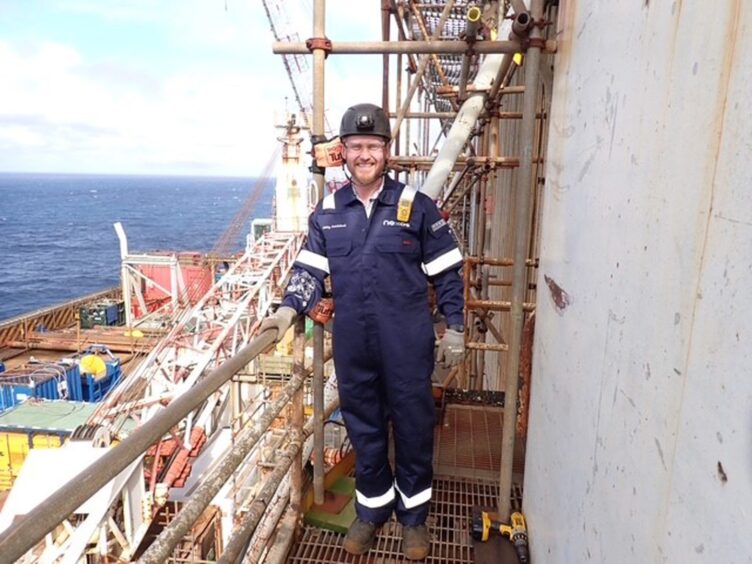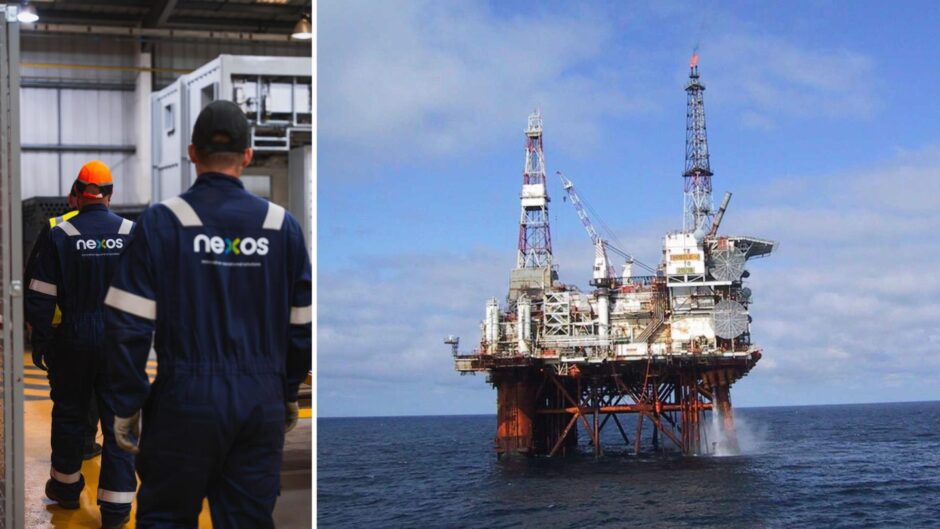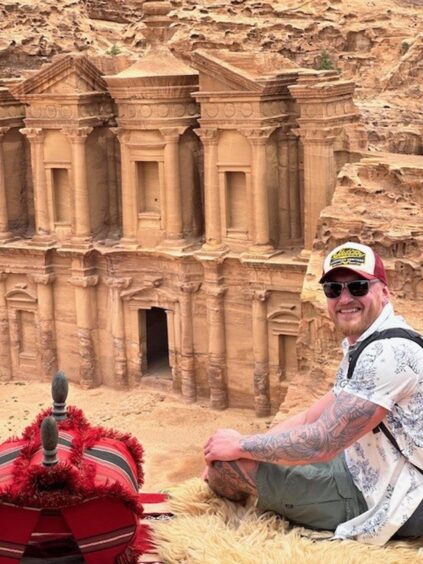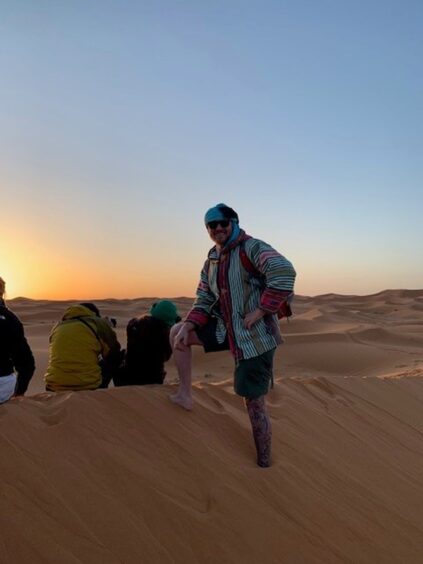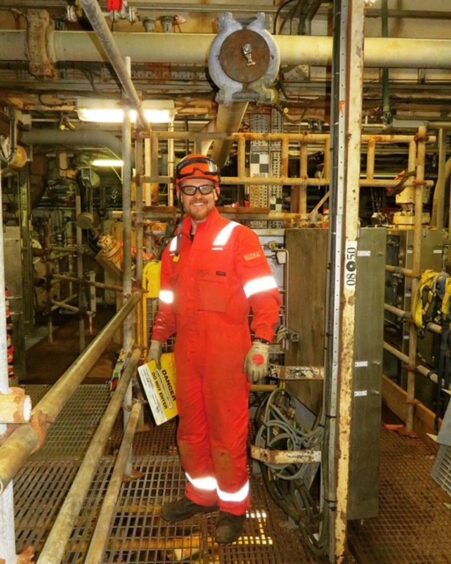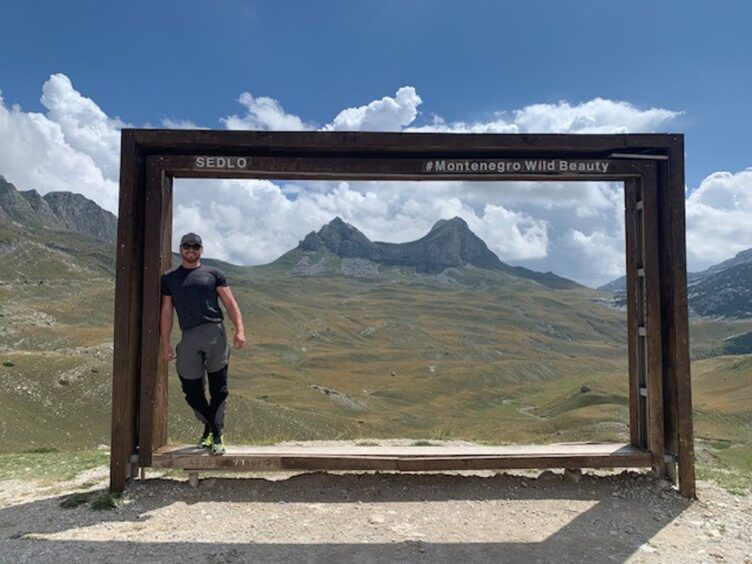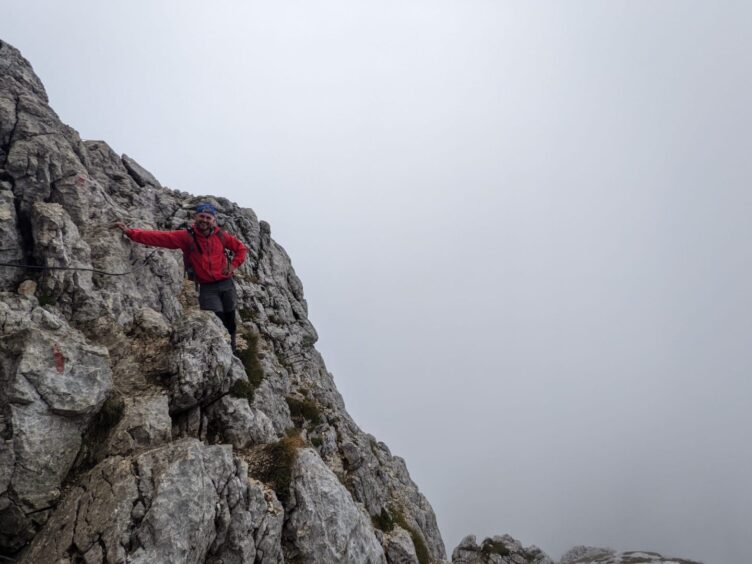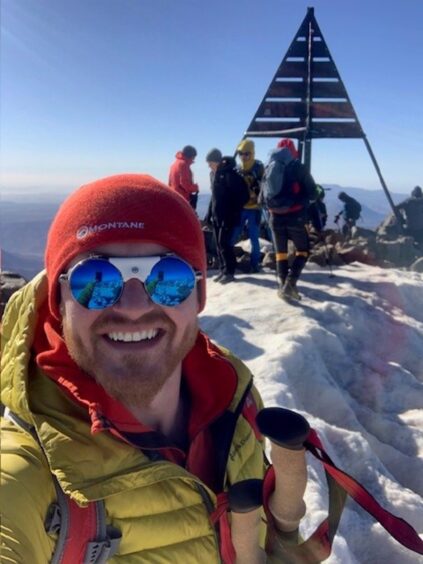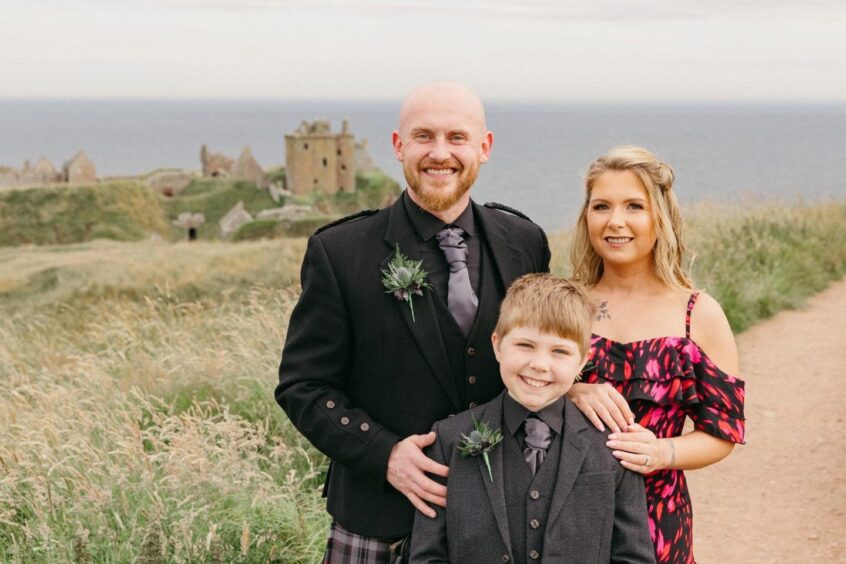Energy Vocations: Why Nexos’ Ashley Cruickshank chose a life in the North Sea over golf
Article Feature from Energy Voice - Energy Vocations is the monthly series in which Energy Voice speaks to workers who keep the UK's lights on.
Golf and oil and gas are two things the north-east of Scotland has in spades, and when it came time to choose a career, Nexos’ Ashley Cruickshank opted for a life in the North Sea over tending fairways.
Following in his grandfather’s footsteps, the now Construction and Facilities Team Lead (CFTL) chose an apprenticeship as a welder/ plater despite offers to work as a greenkeeper.
He has been seconded to EnQuest on its Thistle Alpha Platform and now leads a team of over 40 people.
The Portlethen-born CFTL oversees construction and support services offshore, a task he takes on while wearing one of the 30+ Hawaiian shirts he’s collected over his 12 years in the industry.
Cruickshank got his first taste of offshore life in 2018 on the Magnus platform after some time on Shetland’s Sullom Voe terminal, something he had been looking to do since he first took on an apprenticeship wth Nexos at the age of 17.
What attracted you to that job?
It really started with family. My grandad and uncle were both welder fabricators — my grandad, in particular, made a big impression on me.
He worked as a supervisor for A-FAB and travelled the world with his job. But more than that, he looked after his family.
He always made sure we were looked after and had opportunities. I saw what the offshore lifestyle could offer — not just the financial side, but the ability to provide, to experience the world, and to build something long-term. That left a mark.
After school, I worked as a greenkeeper at the local golf course. I was offered an apprenticeship in that field, but I knew it wasn’t what I wanted to do long-term.
I wanted something more challenging and more rewarding. After a few months out of work, my old careers advisor got in touch and told me about the Prince’s Trust “Get Into Oil and Gas” course.
That course changed everything — 12 weeks of hands-on training at Tullos, learning different trades and disciplines. It gave me a feel for what I liked and what I was good at.
Tullos Training helped connect me with employers, and that’s how I ended up getting selected for an apprenticeship with Nexos (formerly Caledonian Petroleum Services).
I was lucky enough to be supported by some amazing people who believed in me, and from there, I’ve just kept pushing forward.
The job gives me a real sense of purpose — you can see the results of your work, and you’re constantly learning, adapting, and growing.
What attracted you to life offshore after your apprenticeship with Nexos?
During my time as an apprentice with Nexos, I always had my sights set on going offshore.
I’d grown up around stories of life offshore from family, and it just sounded like something I’d thrive in — the time off, the challenge, the variety. I didn’t want a Monday-to-Friday job for the rest of my life; I wanted something that gave me purpose and freedom.
Once I’d completed my survival training, I was offered a tester trip — not to an offshore platform straight away, but to Sullom Voe Terminal (SVT) in Shetland.
That trip really opened my eyes. I liked the rhythm of the work, but what really stuck with me was the camaraderie — the sense of team spirit, everyone mucking in, the banter, and that shared understanding that you’re all in it together.
After that, I was hooked. I knew this was the kind of environment I wanted to be in long-term. That one trip ended up turning into 8 months in Shetland, 3 weeks on 1 week off rota.
From there, it just built momentum. I started chasing every opportunity I could to get out offshore. And once I did — starting with the Magnus platform in early 2018 — it just reinforced everything I’d hoped it would be.
The offshore lifestyle has also given me the time and flexibility to travel, backpack through remote parts of the world, and climb mountains.
I’ve hiked through the deserts of Jordan to reach Petra the back way, climbed the highest peak in the Atlas Mountains, backpacked around Hawaii camping on beaches, Rafted the longest canyon in Europe from Bosnia to Montenegro, rode a camel through the Sahara, and explored hidden spots most people never get to see — all thanks to the balance and freedom offshore work allows.
Do you think building those relationships through your apprenticeship has helped you in climbing the career ladder?
Definitely. Being with Nexos from the very beginning gave me a solid foundation and access to people who genuinely believed in me.
Through my apprenticeship, I had the chance to build strong relationships early on — not just with the offshore crews, but with the onshore management teams too. That network has played a huge part in my progression.
People know I’m easy to work with, always up for a conversation, and I think that approachability goes a long way.
I’ve always believed a wink and a smile gets you a long way — it’s about staying grounded, treating people with respect, and being someone others want to work with.
Loyalty has also been a big part of my journey. I’ve stuck with Nexos throughout my career, and in return, they’ve backed me as I’ve grown.
That loyalty extends to the teams I work with offshore too — I always try to look after my crew, and I think that trust is mutual. Even now, in big meetings, I’m often the one being asked questions — not because I have all the answers, but because I’ve taken the time to build those relationships and earn that trust.
How do you cope with leading a team?
I lead by example. I’ve come up through the ranks, so I know exactly what the guys are dealing with day-to-day.
I still throw on the boiler suit when needed — I’d never ask anyone to do something I wouldn’t do myself. That kind of leadership earns respect.
But for me, it’s not just about getting the job done — it’s about creating the right culture.
One where everyone feels comfortable speaking up, whether they’ve been offshore for ten years or ten days.
That’s how you keep people safe and keep things running smoothly. I always say there’s no such thing as a stupid question, and I make sure the team knows that if something doesn’t feel right, they can say so.
That “stop the job” culture is key, and it needs to feel natural, not forced.
At the same time, I think it’s important to have a bit of fun with it. Offshore life can be tough, so keeping morale up is just as important as keeping operations running.
That’s why I wear a Hawaiian shirt every day offshore — it started as a bit of a laugh, but now it’s become my trademark.
I’ve built up a collection of over 30 shirts, and it helps bring a bit of colour and personality to the platform.
The lads get a kick out of it — it lightens the mood and makes the trip feel a bit more like a “three-week all-inclusive” than just another shift.
If you can lead a team while keeping spirits high, you’re doing something right.
Do you see a future in the oil and gas industry?
Absolutely. I’m only 29, and I fully believe I can build a long, rewarding career in this industry.
There’s still a huge amount of opportunity out here, especially for people who are hands-on, motivated, and willing to learn.
I’m currently studying for a Bachelor of Engineering through the Open University to keep building on the practical experience I’ve gained over the years.
I’m a big believer in technical skills — they’ve taken me from an apprentice welder/ plater to leading construction teams offshore. And honestly, I think those skills will always be in demand, no matter how the energy industry evolves.
Whether it’s oil and gas, renewables, or decommissioning, we’re still going to need people who can get stuck in, solve problems on the ground, and make things work safely and efficiently.
I’d definitely recommend this career path to young people. There’s more than one way into the industry, and you don’t have to go down a traditional university route. Apprenticeships, hands-on training, and getting your foot in the door can lead to brilliant opportunities.
Even if the energy sector transitions in the future, technical trades will always be a valuable skill set — not just for your career, but for life in general.
What are your aspirations for your career? Where do you intend to be in the next five years?
I’ve got a few options on the table. I might take a similar role abroad — there are some great opportunities out there with strong incentives.
I also enjoy the offshore lifestyle and could continue progressing through the ranks in the offshore space.
Or maybe I’ll look at transitioning into a senior onshore role, especially as life changes with family and responsibilities.
One thing I know for sure: I’ll be staying in the energy industry. It’s given me a lot — and I still enjoy learning, developing, and helping others do the same.
